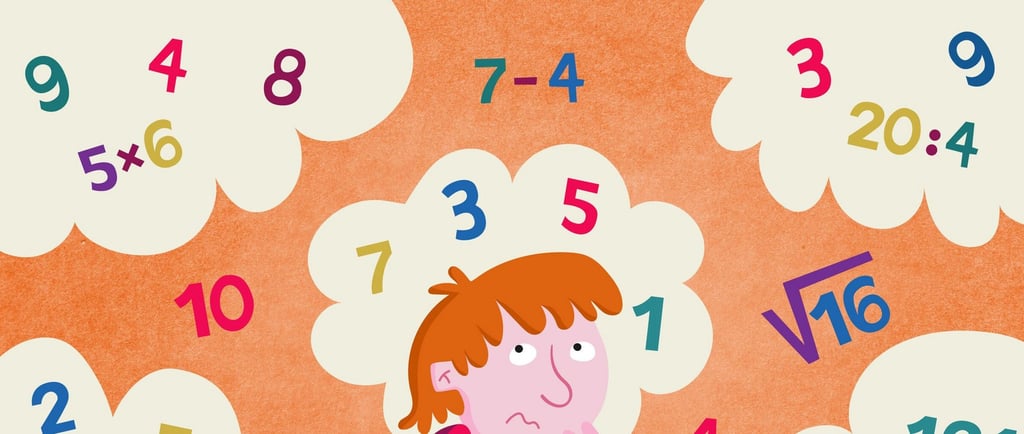Can Dyslexia Affect Math Skills?
When most people think of dyslexia, they think of reading and spelling difficulties. But did you know that dyslexia can also affect math skills?


Many children with dyslexia struggle not only with words, but also with numbers – and this can have a big impact on their confidence and academic progress.
In this post, we’ll explore how dyslexia can influence math abilities, what challenges are common, and what strategies can help.
How Are Reading and Math Connected?
While dyslexia is primarily a language-based learning difference, the same underlying processing challenges that affect reading can also impact math. For example:
Working memory difficulties can make it hard to remember math facts or follow multi-step problems.
Sequencing issues may cause students to mix up numbers, such as writing “41” instead of “14.”
Processing speed challenges can slow down mental math and problem-solving.
Common Math Challenges for Dyslexic Learners
Here are some ways dyslexia can affect math skills:
Number reversals (e.g., confusing 6 and 9, or writing numbers backward)
Difficulty memorizing math facts (addition, subtraction, multiplication)
Struggling with word problems (decoding the language in a math context)
Confusion with place value (understanding tens, hundreds, etc.)
Difficulty following multi-step procedures (e.g., long division)
Some students with dyslexia may also have dyscalculia, a math-specific learning difficulty. However, not all dyslexic learners struggle with math to the same degree.
Signs to Watch For
If your child has dyslexia, look for these signs of math challenges:
Takes a long time to complete math homework
Frequently makes “careless” mistakes, even with simple problems
Avoids or resists math activities
Struggles to keep track of steps in a math problem
Has trouble understanding math vocabulary (e.g., greater than, less than, sum)
How to Support Dyslexic Learners in Math
Use visual aids: Graph paper, charts, and color-coded numbers can help with alignment and organization.
Break problems into steps: Write out each step clearly and explicitly.
Provide multisensory practice: Use manipulatives like blocks, beads, or counters.
Allow extra time: Give students time to process and respond without pressure.
Focus on understanding: Help them grasp concepts rather than just memorizing facts.
Use dyslexia-friendly math tools: Apps, games, and strategies designed for learners with processing differences.
Final Thoughts
While dyslexia primarily affects reading and language, it can absolutely impact math skills too. With the right support, dyslexic learners can build confidence in both reading and math – and discover their own unique strengths.
If your child struggles with math and reading, consider a comprehensive tutoring approach that supports both areas. Contact me today to learn how I can help!
I'd love to chat.
Tell me a little bit about your child and a few of your concerns or struggles (E.g., reading, spelling, vocabulary skills, letters and sounds, etc.)


